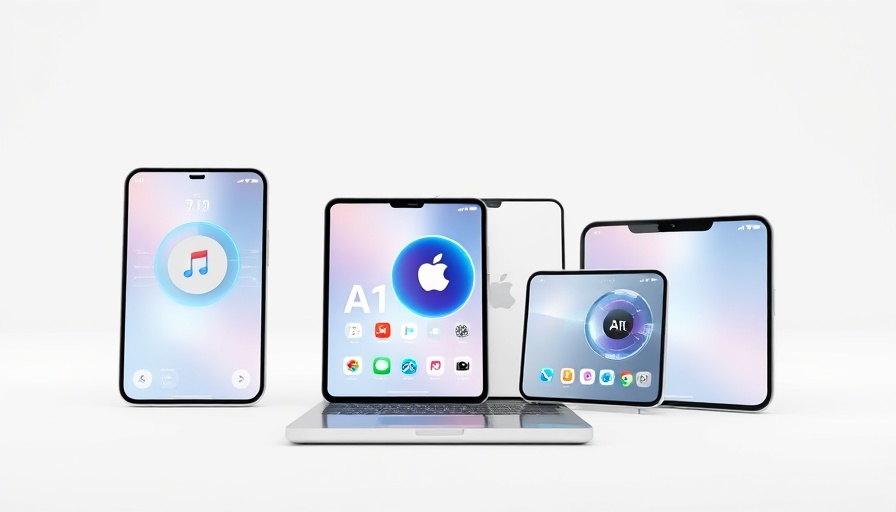
Apple's Incremental Leap into AI
At the recent WWDC25 event, Apple unveiled its latest advancements in artificial intelligence, showcasing a more gradual rather than groundbreaking approach. With the launch of new features for its popular devices, the company highlighted its ongoing commitment to integrating AI technology into everyday applications without overwhelming its user base.
New Features Worth Noticing
Among the most talked-about announcements was the Live Translation feature, which offers real-time translation capabilities for phone calls and FaceTime conversations. This innovation not only bridges language barriers but also enhances user experience, providing a seamless interaction across different cultures. Furthermore, the Workout Buddy, an AI-powered voice assistant, aims to motivate users during exercise, marking a significant step towards personalized user engagement. These updates, while innovative, also raise questions about Apple’s competitive positioning in the AI space.
Playing Catch-Up in the AI Arms Race
Despite these advances, criticisms abound regarding Apple’s position in the AI landscape. Analysts note that Apple’s current models do not match the sophistication of offerings from competitors like OpenAI and Google, which have already made significant strides in AI capabilities. While Apple emphasizes that its AI systems operate on personal devices, providing offline functionality that competes on accessibility, they still lack the robustness found in models that require cloud access. As AI becomes increasingly central to tech, Apple's incremental advancements may be a sign of caution rather than aggression.
Market Analysts Weigh In
Market experts present varied perspectives on Apple’s strategy. Analyst Paolo Pescatore points out that Apple must balance innovation with user satisfaction. "The jury is still out on whether users are gravitating towards a particular phone for AI-driven features,” he noted, suggesting that the company may be prioritizing its loyal customer base over rapid expansion in AI capabilities. In contrast, Francisco Jeronimo from IDC highlights the significance of Apple's move to allow developer access to its AI tools, a step that could enhance Apple’s overall competitiveness compared to long-dominant players in the AI sector.
The Future of AI with Apple
As the tech world rapidly evolves, Apple faces the pressing challenge of redefining its approach to AI. Competitors like Google and OpenAI are pushing boundaries, exploring how AI can revolutionize personal devices and computing experiences. This competition creates a landscape where innovation is crucial not just for user engagement but for survival in a highly competitive market.
Why Accessibility Matters
One of Apple’s key selling points is the ability to operate its AI models on personal devices, reducing dependency on external servers. This not only addresses cybersecurity concerns but also appeals to users wary of the potential costs associated with high-use cloud-based AI models from competitors. Users may prefer Apple's Private Cloud Compute, which ensures data privacy and security.
In Conclusion: Why Now is the Time to Watch Apple
As we look toward the future of technology, Apple's journey in AI is one to watch. The company's strategic moves may influence its future trajectory and impact on the larger scope of technology trends. As advancements continue, remaining informed about Apple’s developments in AI could provide insights into potential shifts in the tech landscape. For those eager to stay at the forefront of tech news today, following Apple’s next steps is essential.
In what ways do you think AI will shape the future of personal technology? Stay informed, as the landscape of new gadgets in 2025 emerges alongside these developments.
 Add Row
Add Row  Add
Add 




 Add Row
Add Row  Add
Add 

Write A Comment